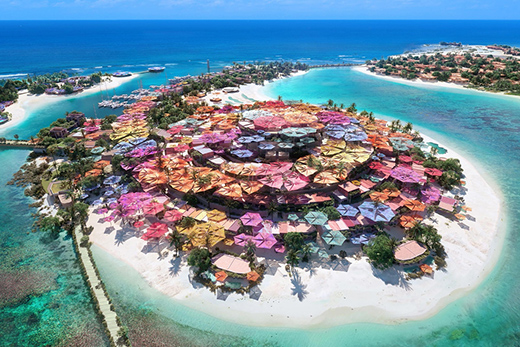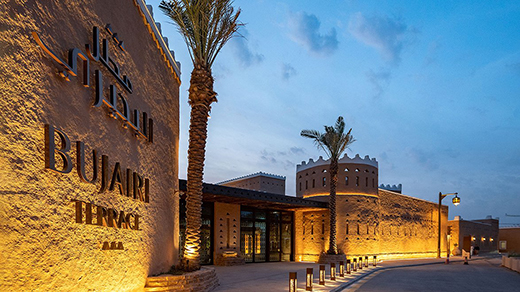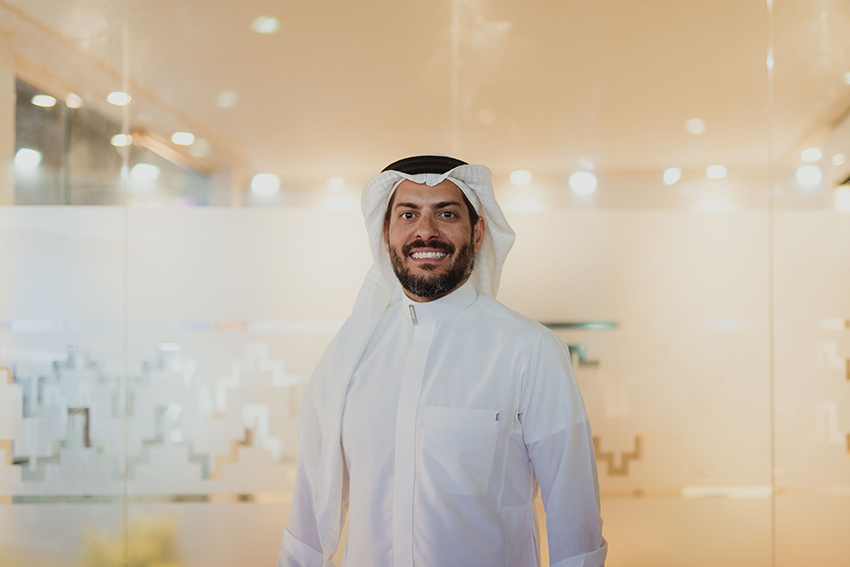By Neha Mehrotra
As Saudi Arabia embraces its newfound openness to global travellers, a wealth of opportunities awaits in this Middle Eastern gem. Aligned with the ambitious Vision 2030, Saudi Arabia In 2023 welcomed over 1.5 million Indian visitors, signalling a robust commitment from the Saudi Tourism Authority (STA) to elevate awareness about tourism and hospitality in the region. To bolster its presence in India, the STA has been diligently engaging in partnerships, trade activities, roadshows, and participation in key industry events since the beginning of the year.
In an exclusive interview with PEAKLIFE, Alhasan Aldabbagh, the President of APAC Markets, Saudi Tourism Authority, shares about Saudi Arabia’s vision for tourism promotion, the tailored initiatives for Indian tourists, and the breathtaking wonders awaiting exploration in his country.
Excerpts from a conversation with Alhasan Aldabbagh, the President of APAC Markets, Saudi Tourism Authority
1. How important is the Indian market for Saudi?
Mr. Alhasan Aldabbagh: India has long been an important partner for Saudi, reflecting centuries-old economic and socio-cultural ties. With a vast population and a burgeoning middle class, India presents a lucrative opportunity to boost tourist numbers. Currently #3, we expect India to be the #1 inbound market for Saudi by 2030. Since 2019, Saudi Arabia has experienced a remarkable 150% growth in inbound tourism, particularly from India, showcasing a consistent upward trajectory.
In 2023, Saudi Arabia welcomed over 1.5 million Indian visitors, marking a notable 50% increase from the previous year. This surge can be attributed to strategic measures and collaboration with the Indian Premier League, improved air connectivity, and the establishment of 10 VFS Tasheel offices throughout India. Saudi Arabia aims to host 7.5 million Indian tourists by 2030, aligning with its ambitious objectives to expand and diversify the tourism sector while fostering stronger bilateral ties.
2. What are some of the unique attractions that have proven to be particularly appealing to Indian tourists?

Mr. Alhasan Aldabbagh: Saudi is a diverse, year-round destination offering unique experiences and a cultural events calendar that caters to every type of traveller. While Medina, Riyadh, Jeddah, and AlUla remain the top destinations for visitors, there’s so much more waiting to be discovered. We have invested heavily in developing tourism infrastructure, including hotels, resorts, and entertainment facilities. This development ensures that Indian tourists have access to a wide range of accommodation options and recreational activities. Key initiatives include the restoration and preservation of heritage sites, such as Al-Ula and Diriyah, and the development of cultural festivals and events that showcase Saudi traditions and customs to Indian visitors.
3. What are some initiatives undertaken by the Saudi Tourism Authority to enhance the overall experience for Indian travellers?
Mr. Alhasan Aldabbagh: It has never been easier to visit Saudi. Enhanced air connectivity and visa initiatives are key to opening Saudi up to Indian travellers. Indians with valid tourist or business visas from the US, UK, or Schengen countries that have been used at least once can easily get a visa on arrival, along with Umrah visas, via the Nusuk platform. The Stopover Visa permits Indian passengers flying with Saudia or Flynas to spend up to 96 hours in the country. We have launched 10 VFS Tasheel offices across Indian cities to enable a seamless travel experience in Saudi. Further, the air capacity between India and Saudi Arabia surged to 2.8 million seats in 2023, a 31% increase since 2019, with seven carriers, including five Indian airlines. We are also introducing value packages to incentivize people to come during the off-season.
4. What steps are you taking to make Saudi a sustainable destination?
Mr. Alhasan Aldabbagh: As a cornerstone of Vision 2030, sustainability is paramount to Saudi’s commitment to the environment. The Saudi Green Initiative, aligned with our target of achieving net zero emissions by 2060, aims to safeguard 30% of the nation’s land and sea. This dedication is evident in our tourism endeavours, from eco-lodges in pristine landscapes to local conservation projects.

We also aim to achieve 30% net conservation in the Red Sea by 2040 to protect the region’s unique coral reefs, mangroves, and diverse marine life as part of the Red Sea Project, making it the largest landscape nursery in the Middle East. Furthermore, initiatives like the Amaala Giga project and NEOM’s project featuring Sindalah, the first zero-carbon smart city in the Red Sea, aim to implement innovations that tackle planetary problems,such as biodiversity loss and species extinctions, and encourage visitors to interact with their natural environment.

5. Lastly, what’s next?
Mr. Alhasan Aldabbagh: We hit the milestone of reaching 100 million tourists in 2023 – seven years ahead of schedule. This places Saudi Arabia well ahead of its original target of hosting 100 million tourists set out under Vision 2030 and has accelerated progress towards a new increased target of 150 million tourists by 2030. Saudi’s tourism sector has achieved a 56% growth in international arrivals in 2023 compared to 2019—the highest in the G20, as per the UNWTO.
We are indeed reimagining the tourism sector to offer a distinctive travel experience by taking the best lessons from others, combined with our own culture and heritage, our desire to transform sustainably, and blending it with technology and innovation needed for a tourism destination of the future. The aim is to open Saudi up to the world, diversify the economy and improve the quality of life for all sections of Saudi society.












